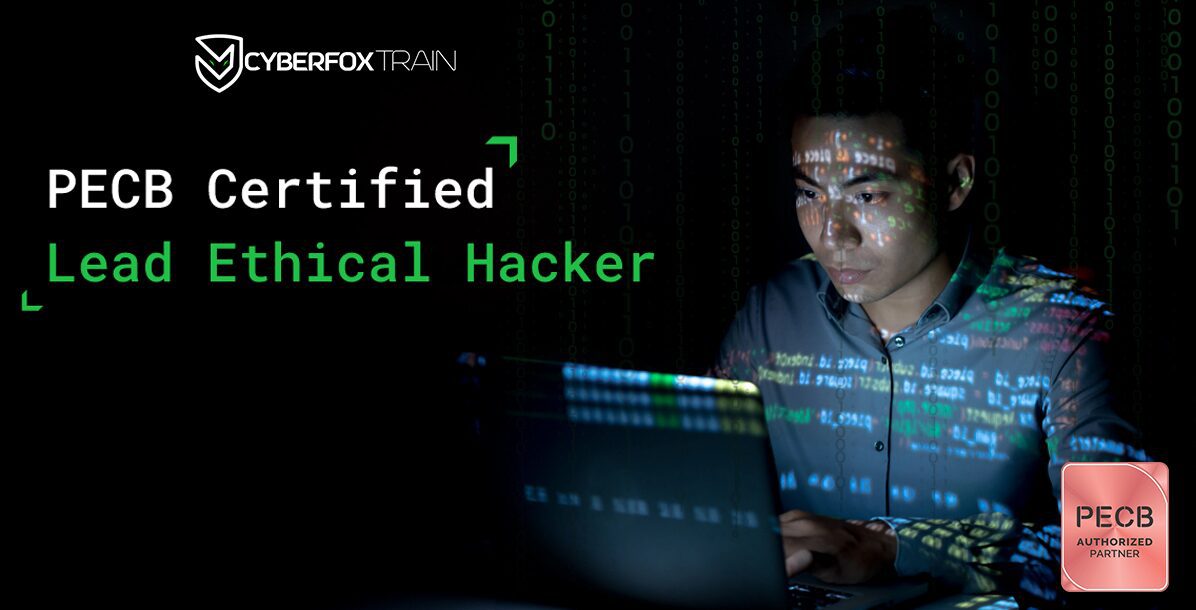The Certified Lead Ethical Hacker – CLEH training course enables participants to develop the competence and knowledge required to conduct ethical hacking, mainly for information systems and network penetration tests. Apart from theoretical information, the training course also includes labs that are completed with a virtual machine.
Why Should You Attend?
As the impact of security incidents in small and large organizations has increased significantly, so has the demand for ethical hacking. Ethical hacking is one of the most effective tools of safeguarding assets and protecting people and information. Ethical hacking certification is slowly becoming a standard requirement for professionals who want to work in the field of information security.
A PECB Certified Lead Ethical Hacker certification will help you demonstrate your ability to lawfully assess the security of systems and discover their vulnerabilities. The training course provides information on the latest ethical hacking methods and tools. It also provides a methodology for conducting penetration tests in accordance with standards and best practices, such as the Penetration Testing Execution Standard (PTES) and the Open Source Security Testing Methodology (OSSTMM).
Understanding hackers’ strategies helps solve security issues and challenges. After attending the training course, you will be able to plan, manage, and perform information security penetration tests.
The PECB Certified Lead Ethical Hacker training course is based on the concept of practicing what you learned. It includes lab sessions and practical examples to help you apply the theory into practice.
The training course is followed by an exam. If you pass, you can apply for a “PECB Certified Lead Ethical Hacker” credential. For more information about the examination process, please refer to the Examination, Certification, and General Information section below.
Why is Ethical Hacking important for you?
Ethical Hackers are also known as White Hat Hackers because they use their expertise in hacking in order to improve the security of organizations by decreasing the number of vulnerabilities and security breaches. With the increase of the number of cyber-attacks, the global demand for ethical hacking services is constantly increasing as well. Globally known organizations chose to include ethical hacking in their security strategies, increasing the demand for Ethical Hackers across various industries. Moreover, experienced Ethical Hackers earn higher salaries than other professionals.
As an Ethical Hacker, you will prove that you possess the necessary expertise to support organizations detect their weaknesses, before a Black Hat Hacker does. Moreover, you will be able to demonstrate that you have the necessary skills to support the process of integrating penetration tests into the organization’s processes and ensure that the intended outcomes are achieved.
Benefits of Ethical Hacking
PECB Ethical Hacker Certificate will prove that you have:
- Mastered the concepts, approaches, standards, methods, and techniques used for the operation of an effective ethical hacking process
- Gained knowledge on the different attacks that can affect the security of an organization
- Obtained the necessary expertise to conduct a penetration test by using different tools and techniques
- Gained the ability to analyze the results of penetration tests and provide effective outcomes
- Higher chances of being distinguished or hired in the security career
- Strengthen your skills and personal qualities necessary to act with due professional care while conducting tests
- Acquired the ability to support organizations in the continual improvement process of their security
Learning Objectives
This training course allows you to:
- Master the concepts, methods, and techniques used by cybersecurity organizations and ethical hackers to conduct penetration tests
- Acknowledge the correlation between penetration testing methodologies, regulatory frameworks, and standards
- Acquire a comprehensive knowledge of the components and operations of ethical hacking
Educational Approach
This training course is participant centered and:
- Includes theoretical and practical exercises to help participants acquire the required skills
- Includes a laboratory environment that provides in-depth knowledge and practical experience
- Encourages participants to communicate and engage in discussion and the completion of exercises
- Encourages participants to complete the practical exercises, which serve as a preparation for and are similar to the tasks of the certification exam
Course agenda
- Day 1: Introduction to ethical hacking
- Training course objectives and structure
- Penetration testing standards, methodologies, and frameworks
- Relevant trends and technologies
- Kali Linux fundamentals
- Initiation of the penetration test
- Lab overview
- Fundamental concepts of ethical hacking
- Network fundamentals
- Understanding cryptography
- Analysis of the penetration testing scope
- Legal implications and contractual agreement
Day 2: Initiating the reconnaissance phase
- Passive reconnaissance
- Active reconnaissance
- Identification of vulnerabilities
Day 3: Initiating the exploitation phase
- Threat model and attack plan
- Evading intrusion detection systems
- Server-side attacks
- Client-side attacks
- Web application attacks
- WIFI attacks
- Privilege escalation
- Pivoting
- File Transfers
- Maintaining access
Day 4: Post-exploitation and reporting
- Cleaning up and destroying artifacts
- Generating a findings report
- Recommendations on mitigating the identified vulnerabilities
- Closing the training course
Day 5: Certification exam
Course Features
- Lecture 0
- Quiz 0
- Duration 5 days
- Skill level Intermediate
- Language English
- Students 0
- Assessments Self
Requirements
- The main requirement for participating in this training course is having knowledge of information security concepts and principles and advanced skills in operating systems. It is recommended for participants to have knowledge of computer networks and the concepts of programming.
Target audiences
- Individuals seeking to gain knowledge about the main techniques used to conduct penetration tests
- Individuals involved in information security seeking to master ethical hacking and penetration testing techniques
- Individuals responsible for the security of information systems, such as information security officers and cybersecurity professionals
- Information security team members seeking to enhance their information security knowledge
- Managers or expert advisors interested in learning how to manage ethical hacking activities
- Technical experts interested in learning how to plan and perform a penetration test






